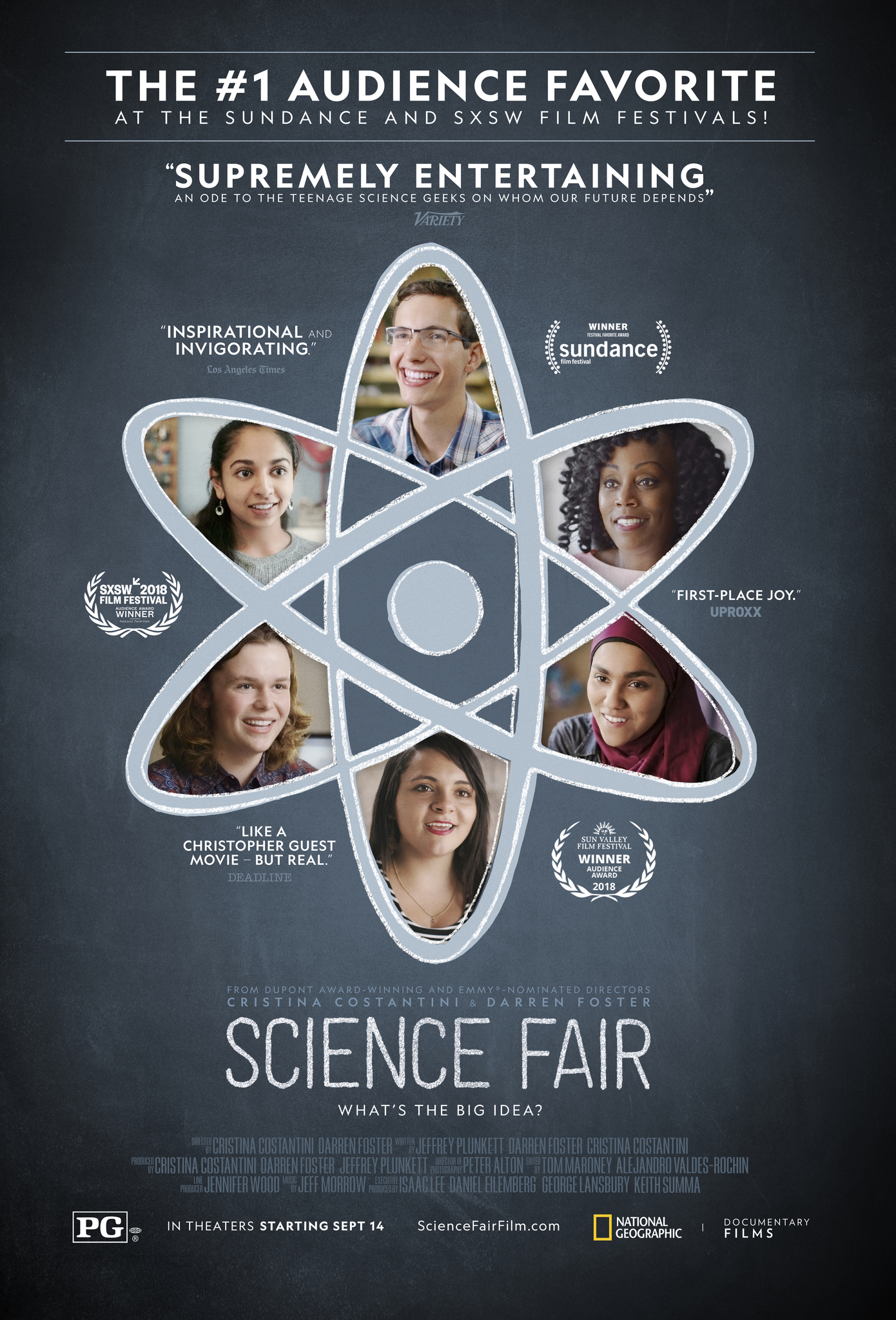Film Review: Science Fair (2018)



While not quite as thrilling as Spellbound from 2002, Science Fair is nonetheless an extremely charming and inspiring little documentary. Comparing these two films isn’t exactly fair (they’re very much their own entities) but there aren’t many documentaries about super-smart kids at competitions. So, there you go. It’s very easy to see the future of our culture and society – and even our existence – in the eyes of these bright young people. I’m aware that saying so is a touch dramatic but watching hundreds of kids from around the world trying to make the world a better place fills me with a giant sense of hope. And that’s something I think we could all use some of that right now.

Centered on the International Science and Engineering Fair (ISEF), Science Fair follows several teenagers as they compete for “Best in Fair.” The connective tissue is ISEF, but the ups and downs of teenage life get a nice treatment as well. Both narratives are engaging on an emotional level, with the latter serving as fodder for the competitive wins and losses.

It’s interesting to watch these kids navigate their talents and being a teenager. While discussing, defending, or explaining how their projects can make a difference – they appear very adult and professional. But, little betrayals of this sophistication creep in from time to time, making ScienceFair that much more human. Some deal with normal teenage anxieties by withdrawing at their schools, some by diving deeper and working harder. And some shrug it off -at least outwardly – with standard teenage overconfidence. Whatever the case, at the end of the day, these kids are still just that – kids. Their fortitude in managing both a rigorous academic life and the usual pitfalls of adolescence is as inspiring as their projects.

From affluent schools in Kentucky and Germany to Brazilian poverty, to sports-obsessed South Dakota, the gifted kids of Science Fair span the social and economic spectrum. They’re all likable, but it’s interesting to see the differences in their projects and their varying degrees of altruism. You will, no doubt, pick your favorites (I know I did), but unlike Spellbound, there’s no process of elimination whittling down contestants. This lack of round by round drama doesn’t take anything away from the fun of the film – in fact, it gives us a better opportunity to get to know all the competitors. Like in a baseball game, each stage gives us time for pause and reflection. The players can take stock of their performances and make predictions about their fates.

A larger cross-section of ISEF contestants could have made Science Fair a bit more balanced, but filmmakers Cristina Costantini and Darren Foster work well under logistical constraints. With 1,700 potential leads, they managed to find some great kids with a lot of potentials. Sadly, Science Fair also bears the burden of serving as a wake-up call to the American public school system. Kashifa, the young woman from South Dakota, exemplifies self-made success, but her story could have easily never been told. Imagine how many more bright young people could flourish in the fields of science and engineering (or any other field for that matter) with proper funding of public schools. Too many kids are missing out on opportunities due to the lack of support given to schools and their staff. Losing even one Kashifa to underfunding or lack of administrative interest in arts and sciences is a damn crime.
